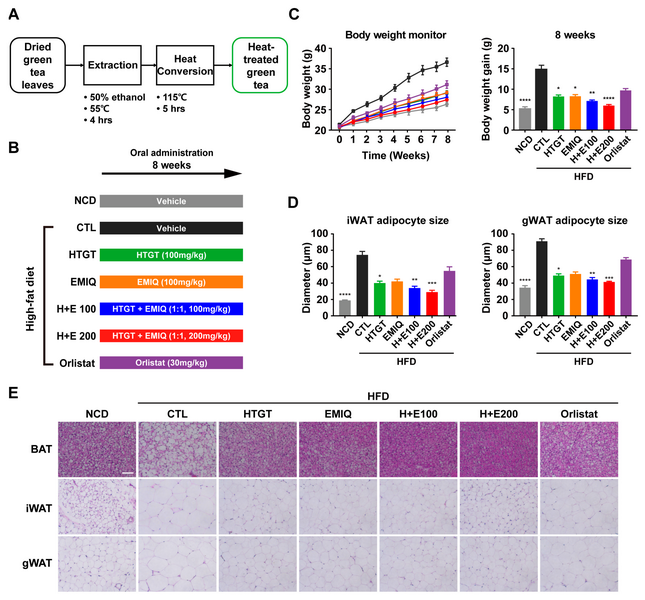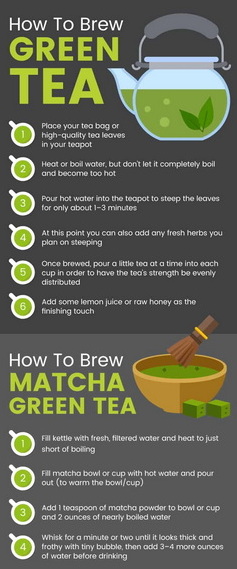Content Menu
● Understanding Green Tea Extract
● Mechanisms of Action
● Evidence from Studies
● Potential Risks and Side Effects
● The Role of Exercise
● Dosage Recommendations
● Conclusion
● FAQs
>> 1. Can I gain weight from taking green tea extract?
>> 2. How much green tea extract should I take for weight loss?
>> 3. Are there any side effects associated with green tea extract?
>> 4. Does green tea extract help reduce belly fat?
>> 5. Is it safe to take green tea extract daily?
● Citations:
Green tea extract (GTE) has gained popularity in recent years as a dietary supplement purported to assist with weight management and overall health. However, the question remains: Can green tea extract cause weight gain? This article will explore the effects of green tea extract on weight, its mechanisms of action, and the potential risks associated with its use.

Understanding Green Tea Extract
Green tea extract is derived from the leaves of the *Camellia sinensis* plant and is rich in polyphenols, particularly catechins, which are believed to be responsible for many of its health benefits. The most notable catechin in green tea is epigallocatechin gallate (EGCG). GTE is often marketed as a weight loss aid due to its potential to boost metabolism and promote fat oxidation.
Mechanisms of Action
Green tea extract may influence weight management through several mechanisms:
- Increased Metabolism: Research indicates that GTE can enhance metabolic rate and increase fat oxidation. Studies suggest that individuals consuming GTE may burn an additional 60-80 calories per day due to increased thermogenesis.
- Fat Oxidation: Green tea catechins, especially EGCG, have been shown to promote fat breakdown, particularly during exercise. In one study, men who took GTE before exercising burned 17% more fat compared to those who did not.
- Appetite Regulation: Some studies propose that GTE may help regulate appetite, potentially leading to reduced caloric intake. However, results are mixed, with some studies showing no significant effect on appetite.
Evidence from Studies
While many studies support the weight loss benefits of green tea extract, others present conflicting results. Here are some key findings:
- A review of multiple studies indicated that individuals taking GTE lost about 3 pounds (1.3 kg) on average over several weeks.
- In a 12-week study involving obese women, participants taking high doses of GTE experienced significant weight loss and reductions in waist circumference compared to a placebo group.
- Conversely, another study found no significant difference in body weight or composition between participants taking GTE and those receiving a placebo after 12 weeks.
These mixed outcomes suggest that while GTE may aid in weight loss for some individuals, it does not guarantee results for everyone.

Potential Risks and Side Effects
Despite its benefits, green tea extract is not without risks. High doses of GTE can lead to adverse effects:
- Liver Damage: There have been reports of liver toxicity associated with high doses of green tea extracts. Individuals taking supplements should be cautious and consult healthcare professionals if they have pre-existing liver conditions. Research has shown that certain genetic variations can increase the risk of liver damage from high-dose GTE[10].
- Caffeine Sensitivity: Green tea contains caffeine, which can cause jitteriness or anxiety in sensitive individuals. Those consuming high amounts of caffeine from other sources may experience diminished effects from GTE.
- Gastrointestinal Issues: Some individuals may experience stomach upset or nausea when taking concentrated forms of green tea extract. This can be exacerbated by taking it on an empty stomach.
The Role of Exercise
The effectiveness of green tea extract in promoting weight loss can be significantly enhanced when combined with regular physical activity. Research indicates that exercise amplifies the fat-burning effects of GTE. For instance:
- A study conducted on mice showed that those consuming decaffeinated green tea extract alongside regular exercise experienced a significant reduction in body weight and abdominal fat compared to those who did not exercise[4].
- In human studies, participants who combined their intake of GTE with exercise reported greater reductions in body fat than those who relied solely on dietary changes or supplements alone[8].
Dosage Recommendations
To harness the potential benefits of green tea extract while minimizing risks, it is essential to adhere to recommended dosages.
- Standard Dosage: Most studies suggest a dosage ranging from 250 mg to 500 mg of EGCG per day for potential weight loss benefits. It is advisable to start with lower doses and gradually increase as tolerated.
- Consumption Guidelines: Drinking moderate amounts of green tea (3 to 5 cups per day) provides beneficial catechins without the risks associated with concentrated extracts[1]. This approach also allows for additional hydration and health benefits associated with regular tea consumption.
Conclusion
In summary, while green tea extract has been linked to modest weight loss benefits through mechanisms such as increased metabolism and fat oxidation, it does not inherently cause weight gain. Individual responses can vary significantly based on factors such as diet, exercise habits, and overall lifestyle.
For those considering incorporating green tea extract into their regimen for weight management, it is essential to approach it as part of a balanced diet and active lifestyle rather than a standalone solution. Additionally, consulting healthcare professionals before starting any new supplement regimen is crucial for ensuring safety and effectiveness.

FAQs
1. Can I gain weight from taking green tea extract?
While green tea extract itself does not cause weight gain, individual responses can vary. It is essential to combine its use with a healthy diet and exercise for optimal results.
2. How much green tea extract should I take for weight loss?
Most studies suggest a dosage ranging from 250 mg to 500 mg of EGCG per day for potential weight loss benefits. However, it's crucial to consult with a healthcare provider before starting any supplement.
3. Are there any side effects associated with green tea extract?
Yes, high doses can lead to side effects such as liver damage and caffeine sensitivity. It's advisable to monitor your intake and consult a healthcare professional if you experience adverse effects.
4. Does green tea extract help reduce belly fat?
Some studies indicate that green tea extract may help reduce visceral fat; however, results vary among individuals.
5. Is it safe to take green tea extract daily?
For most people, moderate consumption is considered safe; however, those with liver issues or caffeine sensitivity should consult a healthcare provider before use.
Citations:
[1] https://www.drugs.com/npp/green-tea.html
[2] https://www.urmc.rochester.edu/encyclopedia/content?contenttypeid=19&contentid=GreenTeaExtract
[3] https://www.cancerresearchuk.org/about-cancer/treatment/complementary-alternative-therapies/individual-therapies/green-tea
[4] https://www.psu.edu/news/research/story/research-suggests-green-tea-exercise-boost-weight-loss-health
[5] https://pubmed.ncbi.nlm.nih.gov/26093535/
[6] https://pmc.ncbi.nlm.nih.gov/articles/PMC3746392/
[7] https://www.webmd.com/vitamins/ai/ingredientmono-960/green-tea
[8] https://www.healthline.com/nutrition/green-tea-and-weight-loss
[9] https://www.cochrane.org/CD008650/ENDOC_green-tea-for-weight-loss-and-weight-maintenance-in-overweight-or-obese-adults
[10] https://www.rutgers.edu/news/green-tea-extract-may-harm-liver-people-certain-genetic-variations






























